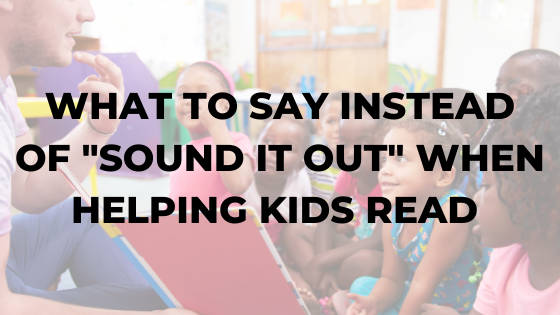SLPs can play SUCH and important role in building literacy skills…
Since SLPs have a background in language, they’re well-equipped to help kids build the decoding skills kids need to be strong readers and spellers.
But sometimes knowing how to provide support can be a little confusing!
A great place to start is by teaching kids effective strategies for “word attack”.
In other words, we teach them what to do when they come to a word they don’t know…or when they’re trying to spell a word.
One of the most common things people tell kids is to “sound it out”.
But what do we do if they still aren’t getting it?
The truth is, a lot of kids don’t know what “sound it out” means.
That’s why we’ve got to take it a step further.
In this video I explain how to do that, so kids have a consistent, effective strategy they can use to read/spell, so they can build solid comprehension skills.
In the video, I mentioned this article called “What is texting doing to reading and spelling skills?” where I about language-based strategies you can use to support reading/spelling, as well as the impact of technology on literacy skills.
To get more information about how SLPs can support their students vocabulary and decoding skills, check out the Word Study Toolkit; my digital download that includes key morphological and orthographic concepts needed to build reading/spelling skills.
Here’s what’s inside the Word Study Toolkit:
- Over 200 flashcards with prefixes, root/base words, suffixes, and multiple meaning words to build strong reading and spelling skills.
- Word lists with key orthographic concepts, so you have a quick guide to important word parts needed for strong vocabulary skills.
- Descriptions of 17 key concepts for building morphology/orthography skills.
- All flashcards and word lists have definitions, so your students actually remember how words are spelled.
- BONUS: Video tutorials with a quick-guide for using the toolkit to build reading and spelling skills.

